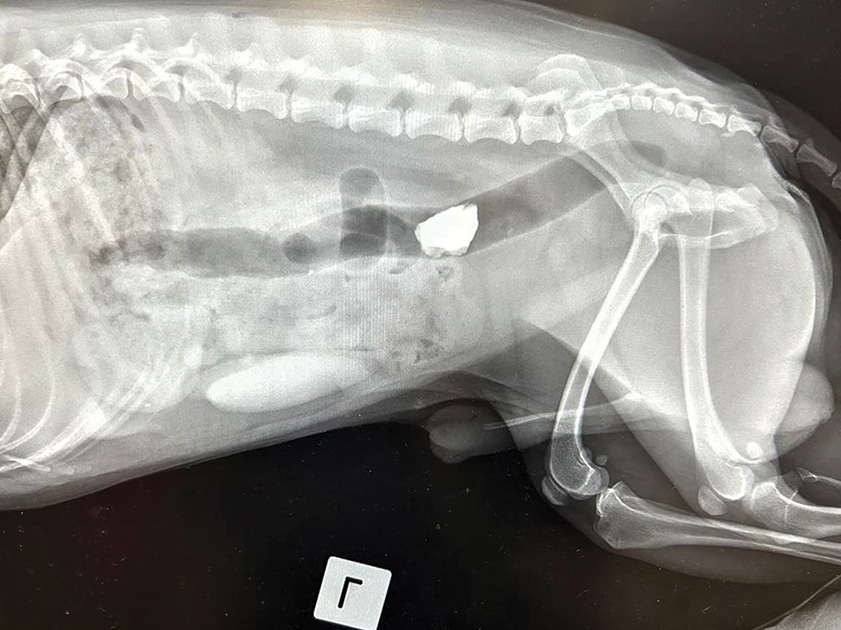By Kellie Tickner, Orchard Hills Veterinary Hospital Administrator
LIKE toddlers, pets have a tendency to chew anything they can get into their mouths. This becomes a serious and potentially life-threatening problem if the objects are swallowed. In the past month we have treated dogs and cats who have ingested various ‘foreign bodies’ which have included toys, clothing, string, rocks, socks and underwear!
Recently, Jett the 18-month-old Schnauzer was presented to the hospital, generally not feeling well. He was not eating and soon began vomiting. An x-ray revealed a foreign body in his intestine, causing a partial obstruction. After being stabilised with IV fluids/electrolytes, pain relief and antibiotics, Jett was closely monitored by our veterinary team of Dr Camille and Dr Lydia. The team had to decide whether Jett could naturally pass the foreign material or whether surgical intervention was required.
The digestive tract is essentially a long tube, passing food from the mouth, down the oesophagus, into the stomach, through the lengthy small intestine, then forming stool in the colon and out the rectum. It generally takes the foreign body from 10-24 hours to move through the entire digestive tract. Some objects, however, can actually remain in the stomach for longer periods of time, even months.
When objects are too large to pass, they usually obstruct at the stomach outflow or within the small intestine itself. With linear foreign bodies, the continual movement of the intestinal tract can literally bunch the intestines into an accordion-like mass.
If the foreign body has managed to move to the colon, it will probably successfully pass. But, defecating a sharp object may prove painful and may even need veterinary assistance.
Jett was very fortunate and managed to successfully pass the ingested rock avoiding the need for an invasive surgical procedure.
If you suspect that your pet has swallowed a foreign body, call Orchard Hills Veterinary Hospital on 0247362027 immediately. The sooner your pet receives medical attention, the better their chances of full recovery with fewer complications.






